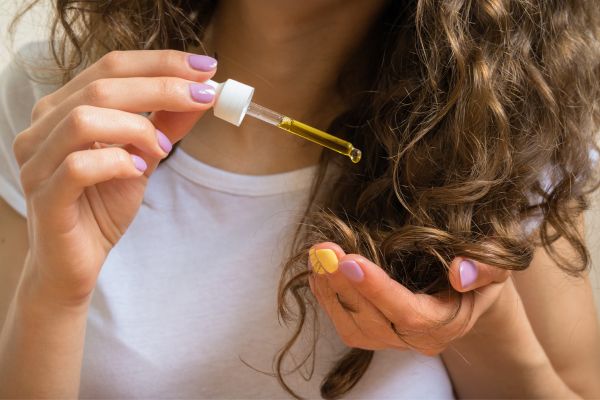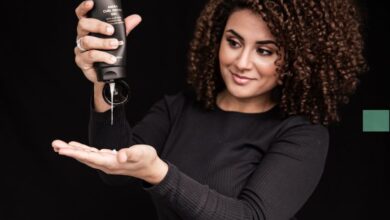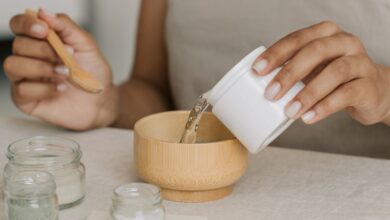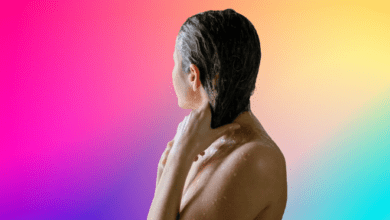Popular oils for your curls

It is impossible to overlook a good oil when searching for products as someone with curly hair. An oil can be a useful supplement to the cleansing shampoos and styling products.
However, where do you begin? Since there are many different kinds of oils, not all of them are good for your hair. Furthermore, not every type will work for your hair type, even those that are appropriate for curly hair.
Why would you apply oil to your hair?
There are various ways to incorporate oil into your hair routine. Additionally, the various oils differ in their properties and how they affect hair. Your curls may experience the following primary effects from the oil:
Furthermore, it benefits your scalp in addition to your hair! The distinction between penetrating and sealing oils will be covered in more detail later.
You have the option of using either commercial or pure oil if you wish to add one. Protein is absent from pure oil. The oil is mixed with commercial oil. It can therefore contain protein because it is a combination.
You have essential oil, too. (also known as essential oil). Because they are mostly derived from plants, these can also be an effective tool. These are frequently used to treat issues with the scalp and hair. This is mostly because of these oils’ calming, hydrating, and anti-inflammatory properties. Furthermore, because they are highly concentrated, a small amount of product is required to achieve the desired result.
Popular oils for curls
Castor oil, rosemary oil, coconut oil, and argan oil are a few well-known and widely used oils.
An outline of how these oils may affect your hair and scalp can be found below.
1. Oil from coconuts
Coconut oil has the ability to penetrate and seal. This indicates that it is an oil that both penetrates and leaves a layer on the hair shaft. In this manner, the oil can protect and nourish your hair from the inside out.
Characteristics of coconut oil:
- Includes organic fatty acids.
- Antimicrobial action.
- Anti-inflammatory action.
- A natural cure for dry scalp.
Coconut oil can be applied to your curls in a variety of ways. It can be applied to the scalp to stop dandruff as well as a deep conditioner (mask).
Please be aware that not all hair types react favorably to coconut oil. You can always combine it with another oil if this is the case for you.
2. The Castorolia
There is a reason castor oil is called castor oil. For centuries, it has been used to treat a variety of scalp and hair issues. Castor oil can affect your curls in the following ways.
- Make the hair stronger.
- Encourage the growth of hair.
- Treat dry hair and scalp.
- Put some luster on it.
Fatty acid-rich, this heavy oil is most effective on damp hair. Is your porosity low? Therefore, it is best to avoid using castor oil. This oil seals the hair, making it difficult for moisture to enter if your hair has low porosity. Is your hair extremely porous? In that case, the LCO method benefits greatly from this oil.
3. Oil of argan
If you have frizzy hair, argan oil is the best oil for you. Because of the fatty acids it contains, it is a protective oil that seals hair. Vitamin E, an antioxidant that supports hair growth and maintains the health of your hair, is also present in argan oil. Several advantages of argan oil in brief:
- Encourages and stimulates the growth of hair.
- Decreased hair loss.
- Restores damaged hair, hydrates it, and lessens frizz.
- Acts as a shield against heat.
Would you like to use argan oil if you have thin hair? Rinsing it out after application is the best option. You don’t have to do this if your hair is thicker.
4. Oil of rosemary
This oil is most well-known for its ability to stop hair loss in addition to encouraging hair growth. Furthermore, the oil is frequently applied to scalp issues like flakes and dandruff.
Would you like to encourage hair growth with the oil? Then massage the scalp with this two or three times a week. After an hour, let it sit before shampooing your hair.
The following inquiries are frequently sent to us:
- What distinguishes Jamaican black castor oil from ordinary castor oil?
- Is there another oil I could use since I find castor oil to be too heavy?
What distinguishes Jamaican black castor oil from ordinary castor oil?
Both have been used for centuries to treat skin and hair, and they are derived from the castor plant. Castor oil is extracted from this plant’s beans by pressing them. The primary distinction is that these beans are first roasted using black castor oil. This also explains the darker color of this oil. Numerous healthy vitamins and minerals for skin and hair are present in both varieties of this oil. Your choice between the two will mostly depend on your personal preferences.
Nonetheless, Jamaican black castor oil is frequently used when applying castor oil to curly hair. The following is the cause of this. The beans are first roasted with black castor oil, which results in the presence of ash particles. Because of their higher pH, these ash particles can open, cleanse, and hydrate your skin’s (and scalp’s) pores.
Because the ash in the black Castor variety thickens the hair fibers and forms a thin layer around the hair, it is also thought to give the hair more volume.
Because less nutritional value is left after roasting, some people insist on using cold-pressed oil. There is no scientific proof for this. Thus, the dark castor oil will hydrate and nourish just as effectively.
What distinguishes penetrating oil from sealing oil, and when should one be used?
As the name suggests, a penetrating oil nourishes hair by penetrating it. A layer of sealing oil is applied to the hair to seal in the applied nutrients. Furthermore, some oils have a sealing effect while still slightly penetrating the hair.
Here is a summary of a few.
Among the penetrating oils are:
- Oil of monoi
- Coconut oil
- Oil from sunflowers
The following sealing oils have some penetration as well:
- Olie with avocado
- Argan oil
- Almond oil
- Olive oil
Oil for sealing:
When should a penetrating oil be used and when should a sealing oil be used? For the LOC method or as a mask, a penetrating oil works best. For the LCO method, you can use a sealing oil to seal the liquid and crème into the hair.
Are you truly interested in finding out which oil will work best for your curls? Simply give it a go!




